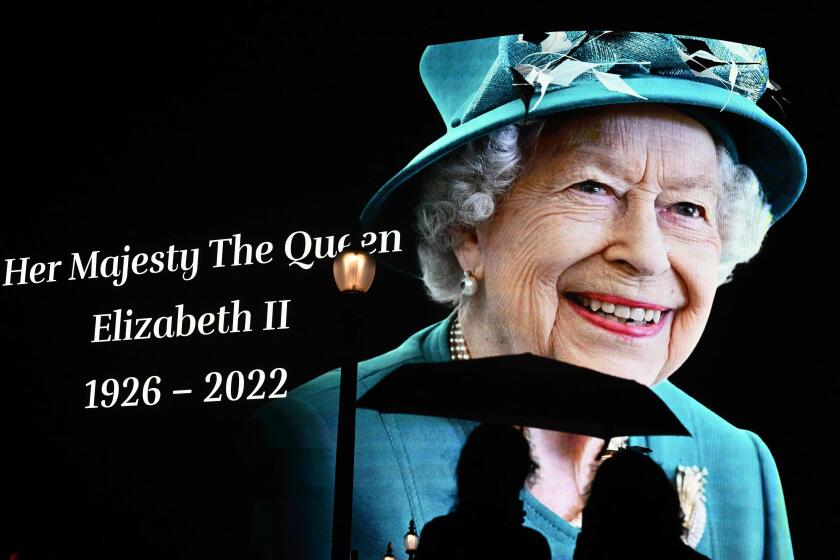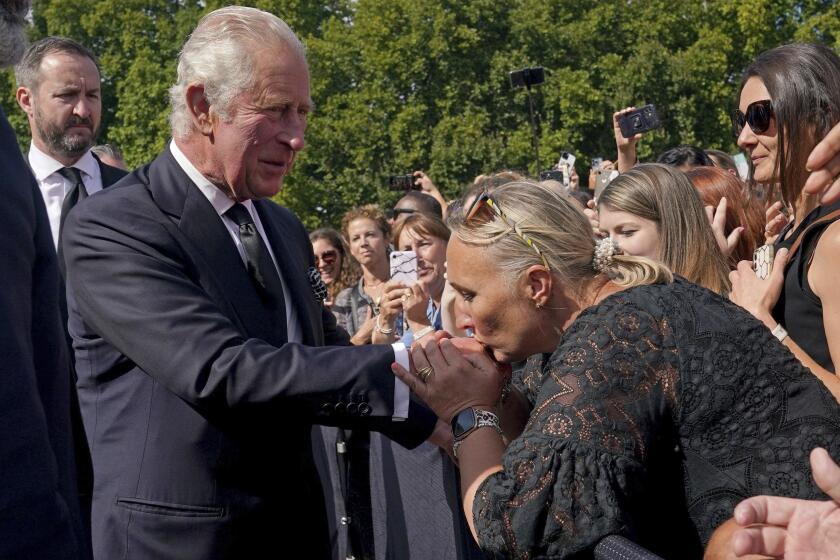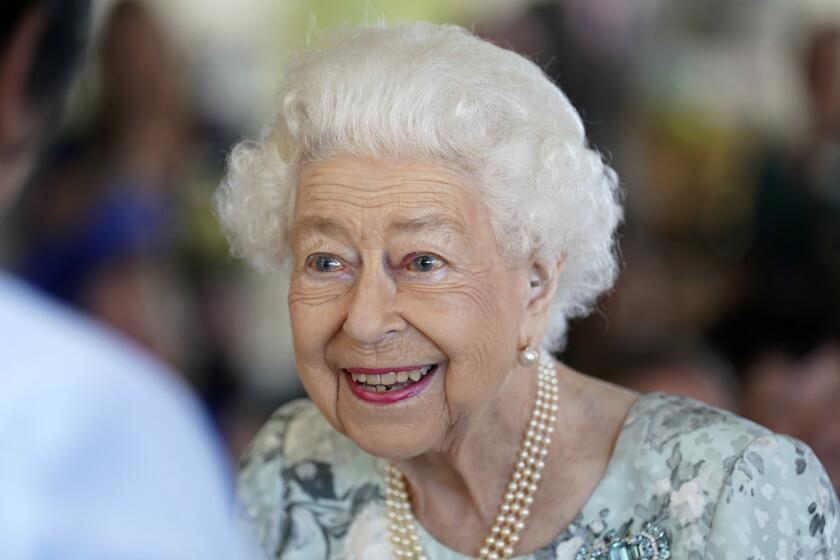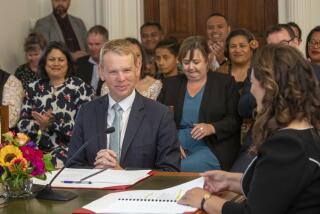New Zealand’s leader says no plans to push for a republic following queen’s death
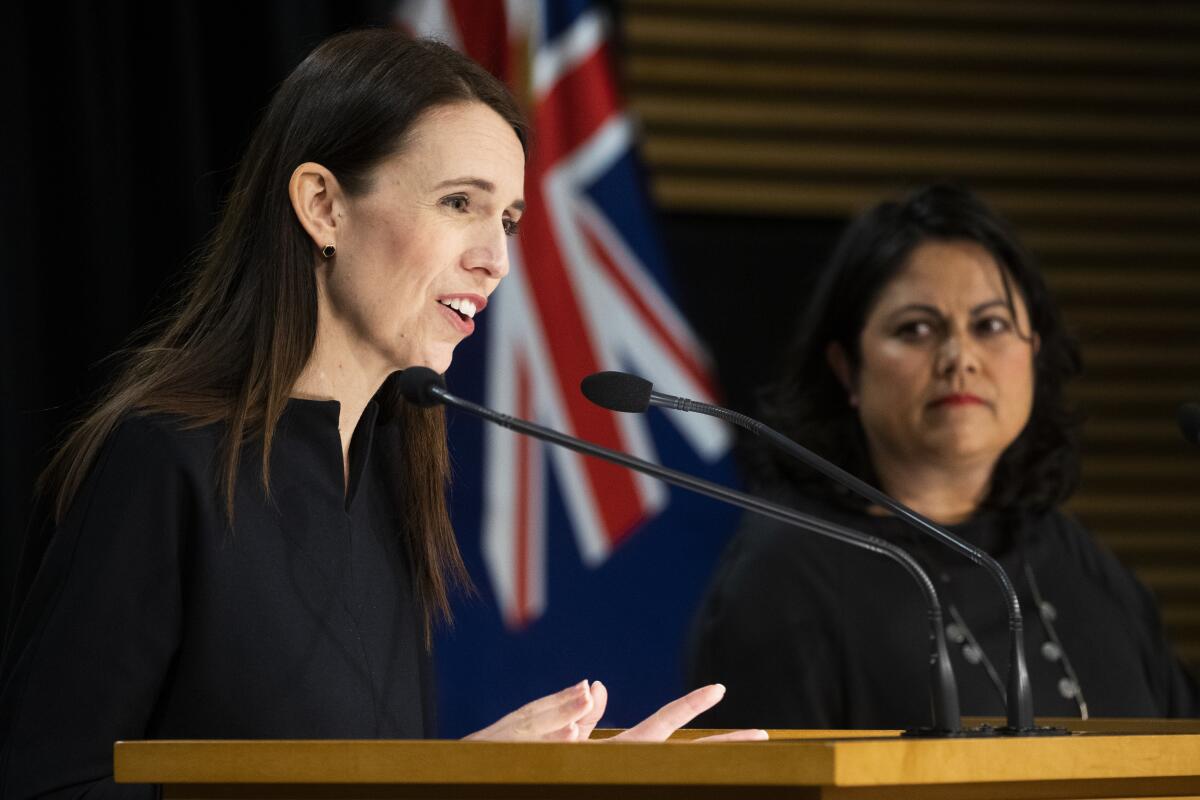
WELLINGTON, New Zealand — Prime Minister Jacinda Ardern said Monday that her government will not be pursuing any move toward changing New Zealand — which recognizes the British monarch as its head of state — to a republic following the death of Queen Elizabeth II.
Ardern said she thought that New Zealand would eventually become a republic, and it would probably happen within her lifetime, but that there were more pressing issues for her government to pursue.
Her comments represent the first time she has spoken about the New Zealand republican debate since Elizabeth’s death, and repeat previous comments she has made on the issue. Ardern has also previously expressed her support for the country eventually becoming a republic.
Under the current system, the British monarch remains head of state and is represented in New Zealand by a governor-general. The governor-general’s role is these days considered primarily ceremonial.
Still, many people argue that New Zealand won’t be able to fully step out from the shadows of its colonialist past and become a truly independent nation until it does become a republic.
“There’s been a debate, probably for a number of years,” Ardern said. “It’s just the pace, and how widely that debate is occurring. I’ve made my view plain many times. I do believe that is where New Zealand will head, in time. I believe it is likely to occur in my lifetime.
In India, emotions over Queen Elizabeth II’s passing ran the gamut, from sympathy to calls for the return of the Kohinoor diamond.
“But I don’t see it as a short-term measure or anything that is on the agenda any time soon,” Ardern said.
She said that becoming a republic was not something her government planned to discuss at any point.
“As I say, in large part actually because I’ve never sensed the urgency,” Ardern said. “There are so many challenges we face. This is a large, significant debate. I don’t think it’s one that would or should occur quickly.”
The death of Elizabeth and ascension of King Charles III to the throne has revived the republican debate in many countries around the world.
A rising tide of anti-royal sentiment thrusts a British throne without Queen Elizabeth into unstable territory.
Charles became the head of state not only in the United Kingdom and New Zealand but also in 13 other countries, including Canada, Jamaica and Australia.
Australian Prime Minister Anthony Albanese started laying the groundwork for an Australian republic after he was elected in May. But he said Sunday that now is not the time for a change but rather for paying tribute to Elizabeth. He previously said that holding a referendum on becoming a republic was not a priority of his first term as premier.
Many people in New Zealand have speculated in the past that the republican debate would gather momentum only after the death of Elizabeth, given how beloved she was by so many. But Ardern said she didn’t link the two events.
Elizabeth’s image features on many of New Zealand’s coins and banknotes. prompting the nation’s central bank to advise people that the currency with her image remains legal tender following her death.
Queen Elizabeth II’s 70-year reign was so long that most of Britain’s 68 million people have known no other sovereign.
Ardern also announced Monday that New Zealand would mark the death of the queen with a public holiday Sept. 26. The nation will also hold a state memorial service on the same day in the capital, Wellington.
Ardern said that Elizabeth was an extraordinary person and that many New Zealanders would appreciate the opportunity to mark her death and celebrate her life.
“As New Zealand’s queen and much-loved sovereign for over 70 years, it is appropriate that we mark her life of dedicated public service with a state memorial service and a one-off public holiday,” Ardern said.
Ardern said she would be leaving this week for Britain to attend Elizabeth’s funeral, which is scheduled for Sept. 19.
More to Read
Sign up for Essential California
The most important California stories and recommendations in your inbox every morning.
You may occasionally receive promotional content from the Los Angeles Times.
